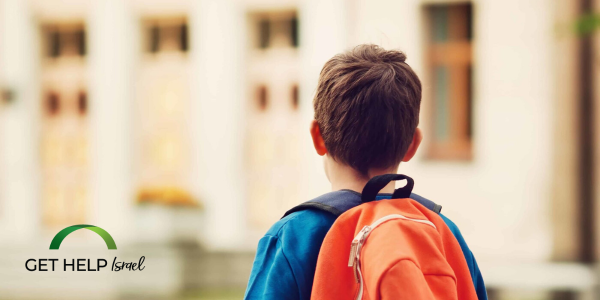Back To School With ADHD

The following advice on back-to-school is relevant for all kids, but I will focus particularly on those with ADHD, and their added challenges around going back to school.
Individuals with ADHD do better with consistent routines, and needless to say, there has been anything but that lately. Their struggles with transitions can mistakenly look like resistance or testing limits, or even worse, be considered laziness. Preparation helps facilitate making smoother transitions. This is challenging, as we don’t always have time for proper preparation. Nonetheless, we have to work with what we have. They need clear information and limits as well as empathy for their challenges and confusion. When they ask questions, answer the particular question, making “a long story short”, not the other way around.
You can phrase the following message according to your child’s age and comprehension level:
“We have been staying home because the doctors wanted to keep us safe from getting (and transmitting) Corona. Everyone did a great job, so now the doctors in Israel think it’s safe to start going back to school and work. You may not feel like going back because you got used to being home. I understand because sometimes I also feel like sleeping late and skipping work or not making your sandwiches every day before school. But this isn’t a choice.
We still have to be extra careful, so there will be new rules at school. The most important rule is personal hygiene. We have to keep washing hands a lot. If we need to cough or sneeze, then into a tissue or our elbow-never in the air or our hands. The teachers will be telling you how to keep safe distance; this will feel strange, and not so much fun. The better we do, the sooner we can go back to giving high fives and hugs and playing near each other, but we will keep up with our good hygiene habits all the time.”
Remember that routines previously established, won’t automatically be reinstated. Also remember that people with ADHD need more practice than others in turning a new rule into a habit or routine they will practice consistently. They may need gentle short reminders with words like “hands” or “distance”.
Another challenge in ADHD is impulsivity. Even people who know the rules by heart, such as sneezing into one’s elbow, will need time to process that knowledge; they will likely miss at first. Only after a behavior has been practiced, does it become second nature, and will be internalized as habit. So be patient when your child forgets. Don’t make the mistake of asking them to promise to do something that they need time to learn, setting them up for disappointment. The best they can do is promise to keep trying. Dr. Ross Greene, a leading child psychologist, argues that "if your child could do well, he would do well." I believe this is true. Knowing you believe in them means a lot to any kid.
Many of the families who come to me, whether for parental guidance or child, family or couples therapy (or a combination), discover there are ways to help those with ADHD achieve their goals and keep their self esteem intact, which is crucial for development.
During Corona, I have been seeing clients on zoom, and I will keep abreast of the health regulations regarding returning to my clinic in Rehovot. I also offer reduced rates for those who have suffered a loss of income due to Corona.



